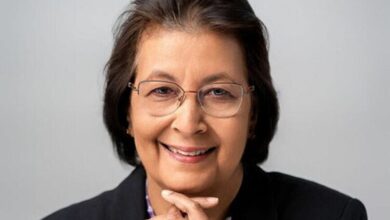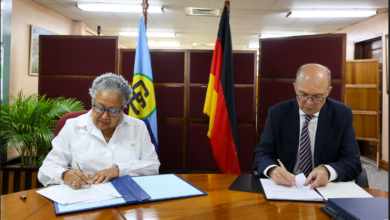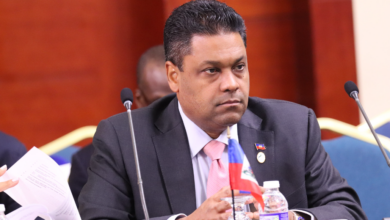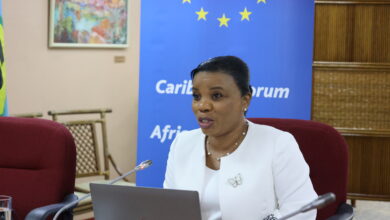More than 90 youth delegates representing 18 Caribbean territories move into the third round of deliberations today, up-beat on their course of action to make a formidable impact in moving forward the implementation of decisions and recommendations pertaining to the empowerment and development of Caribbean youth which have arisen out of conferences and workshops held over the past five years.
The youth began their five-day programme of activities on Monday with a gala opening ceremony with the featured highlight of the launching of the Caribbean Community (CARICOM) Youth Ambassadors in which representatives of twelve Member States were invested with the instruments of Office for a three-year period. Grenada’s Minister of Youth, Sport and Community Development, Honourable Adrian Mitchell officiated at the ceremonial event.
An anthology of youth poetry was also launched by the Commonwealth Youth Programme Regional office as part of the Commonwealth Caribbean programme of activities aimed at developing youth literary skills.
The youth spent the first two days of the Caribbean Youth Explosion 2000 at the St. George’s University Campus, in St. George’s, Grenada, reviewing the status of implementation of decisions, and have been looking at youth-led mechanisms and strategies for speeding-up the implementation of decisions on children’s rights, HIV/AIDS; regionalism, integration and civil society; and governance and democracy.
In delivering the key note address at the opening session, Dr Edward Greene, Assistant Secretary-General of the Caribbean Community (CARICOM) Secretariat, urged Caribbean youth to assert their rights to be represented and their entitlement to help to chart a region capable of providing a better life for ‘you and this generation and future generations of Caribbean youth’.
In setting the pace for the youth deliberations, Dr Greene observed that within the complexity of rapid changes, Caribbean youth can play their part by being an integral part of the CARICOM Single Market and Economy (CSME) movement, and he observed that in this way they would be ensuring the youth agenda is made prominent among the priorities that are being discussed by the decision-makers, while ensuring that ‘your voices are heard …’
Earlier, Dr Greene alluded to the overall issue of creating human development with equity not only for the population as a whole but specifically among the Caribbean youth. He said that in this regard here are some benchmarks of illustrations of best practices in the Region which he urged the Youth Forum to examine. Dr Greene cited policy options that focus on youth skills and employment, and noted that these are being implemented with varying levels of success in many territories in the Region – Barbados, Dominica, Grenada, Jamaica, St Kitts and Nevis and Trinidad and Tobago.
The benchmarks, he noted, focus essentially on strengthening the service delivery networks for youth within the Region; increasing technical and managerial capability; design, implementation and evaluation of entrepreneurial training; and recommending public policy and model legislation for the structure and organisation of future youth enterprise programmes.
Dr Greene laid clear for the Youth Forum a frame-work for Caribbean youth to actually contribute “to more efficient and equitable Caribbean space,” and pinpointed CARICOM’s priority to provide “an enabling environment for youth empowerment”.
He contended that this explosion and other activities that bring youth together are useful but that they have little meaning unless they can recommend concrete policies and programmes which are formulated with a demonstrable commitment to their implementation.
Continuing, Dr Greene observed that a plan of action coming out from fora such as the ‘explosion’ must be institutionalised, and must focus on how to actually enhance the entrepreneurial skills, and access to information, and language facility. He also pointed out the fora must also address the operationalisation of Governance by ensuring that “your school system, health system and regional groups are accountable and respond to your needs”.
The youth began their deliberations in plenary following presentations by CARICOM, the Commonwealth Youth Programme, and UNICEF, and continued into the second day in skills- building sessions in areas such as assertiveness, peer support, conflict resolution and governance practices according to parliamentary practices.
The youth have been engaged in workshop sessions, looking at advocacy and lobbying, in which they are being exposed to skills development in community mobilisation, media relations and resource mobilisation. They will also be engaged in real life experiences when they participate in Community Youth Encounter in selected Grenadian communities.





